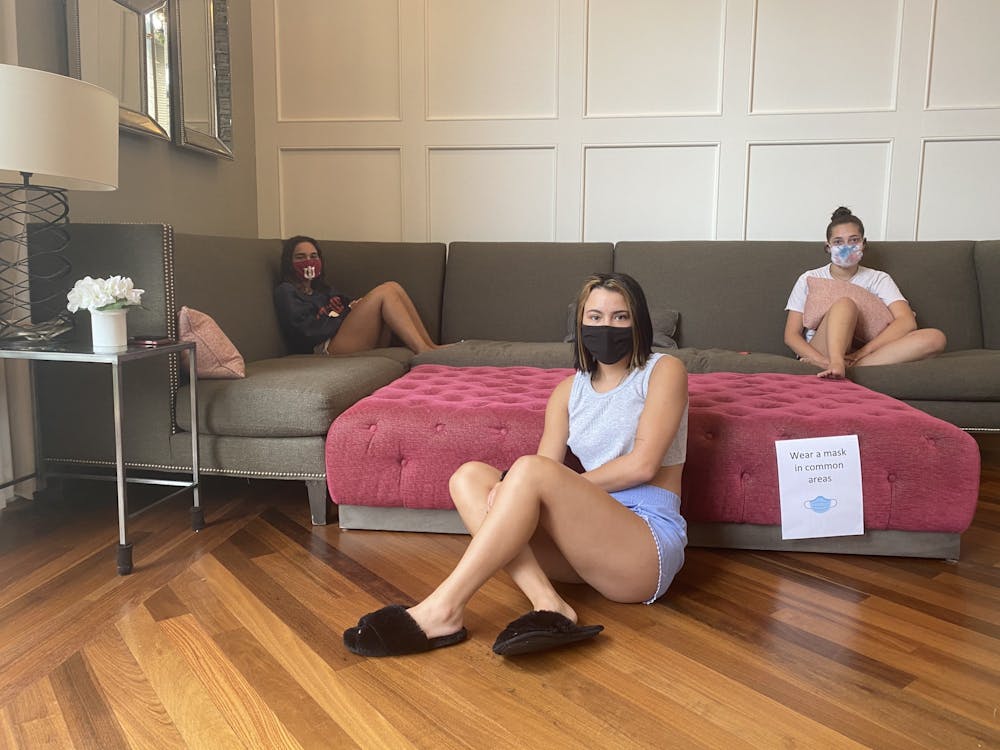As the list of greek houses quarantined grows, the blame for IU’s COVID-19 caseload gets placed on the greek life community. It is a conclusion rather easy to jump to, seeing as greek life has a population of more than 2,600 people and is notorious for being a social institution.
Many greek life members have found themselves in the impossible situation of not knowing where to live, not knowing what to do and feeling as though the university has turned its back on them. Here’s the fact of the matter: IU failed all of us with its COVID-19 response, likely knowing any effort to bring students back to Bloomington would make the virus next to impossible to contain. Look no further than the United States’ inability to grapple with the pandemic and the ever-increasing number of cases.
“My sorority is doing their part each and every day and it is going unnoticed by IU,” said Catie Francek, a sophomore in Sigma Kappa. “As with many other chapters on this campus, they have done everything IU has asked of them, and instead they are blaming every greek life chapter for an ‘alarming increase in positive COVID-19 cases.’”
The risk in coming back to school was one that could have been avoided. Being from out of state, I can confidently say I was dreaming of when I would be able to walk the streets of Bloomington again. But our country has criminally mismanaged the pandemic.
Those few months we all spent in quarantine were not enough, and the proof is in the more than six million total cases and 188,551 deaths in the U.S. IU knew of this reality, yet still invited us back.
An IDS editorial published Sept. 3 reported a 20% positivity rate among greek residents. It also argued IU must be transparent with its data, demanding the university release all relevant statistics. Detailing individual greek houses while not doing the same for residence halls is in no way an accurate representation of COVID-19 cases across campus.
It may also be a violation of students’ privacy rights.
“Personally identifying students is problematic,” said LeRoy Rooker, former director of the Department of Education's Family Policy Compliance Office. “Targeting the houses individually is the same as saying a certain floor in a dormitory has a COVID outbreak. If you know someone who lives on that floor, you will know they are positive.”
In a press conference Sept. 3, the university said students currently living in greek housing should seek other living arrangements, or consider going home. That recommendation disregards the students who live out of state and those who can not go home because they would be putting loved ones at risk.
“I live with my 83-year-old grandmother who is in the category of high-risk individuals that if they contracted COVID-19, it could be fatal,” Francek said. “Going home is not an option.”
More than ever, the IU community needs to be a united front. Thousands of students in the greek community and university housing are uncertain if they will have a place to live this semester. Many do not have the ability to go home.
The statement telling me I might have to move concluded with a simple, indifferent direction: “focus on your studies.” While jeopardizing my housing and sense of security, the university treated me with the same callousness it did all of its students when they invited us back. If your home was being snatched from under you, would you be able to focus on your studies?
The university is the one that brought students back knowing the severity of the COVID-19 pandemic nationwide. It was the university who told those living in greek housing it would be acceptable to live in if certain guidelines were to be followed. Yet here we are, with thousands of students potentially out of housing because it was the university who misled them.
Maggie Mulligan (she/her) is a sophomore studying recreational therapy and theatre. Maggie is a member of the Redstepper Dance Team, Gamma Phi Beta sorority and the Panhellenic Association Diversity and Inclusion board.




